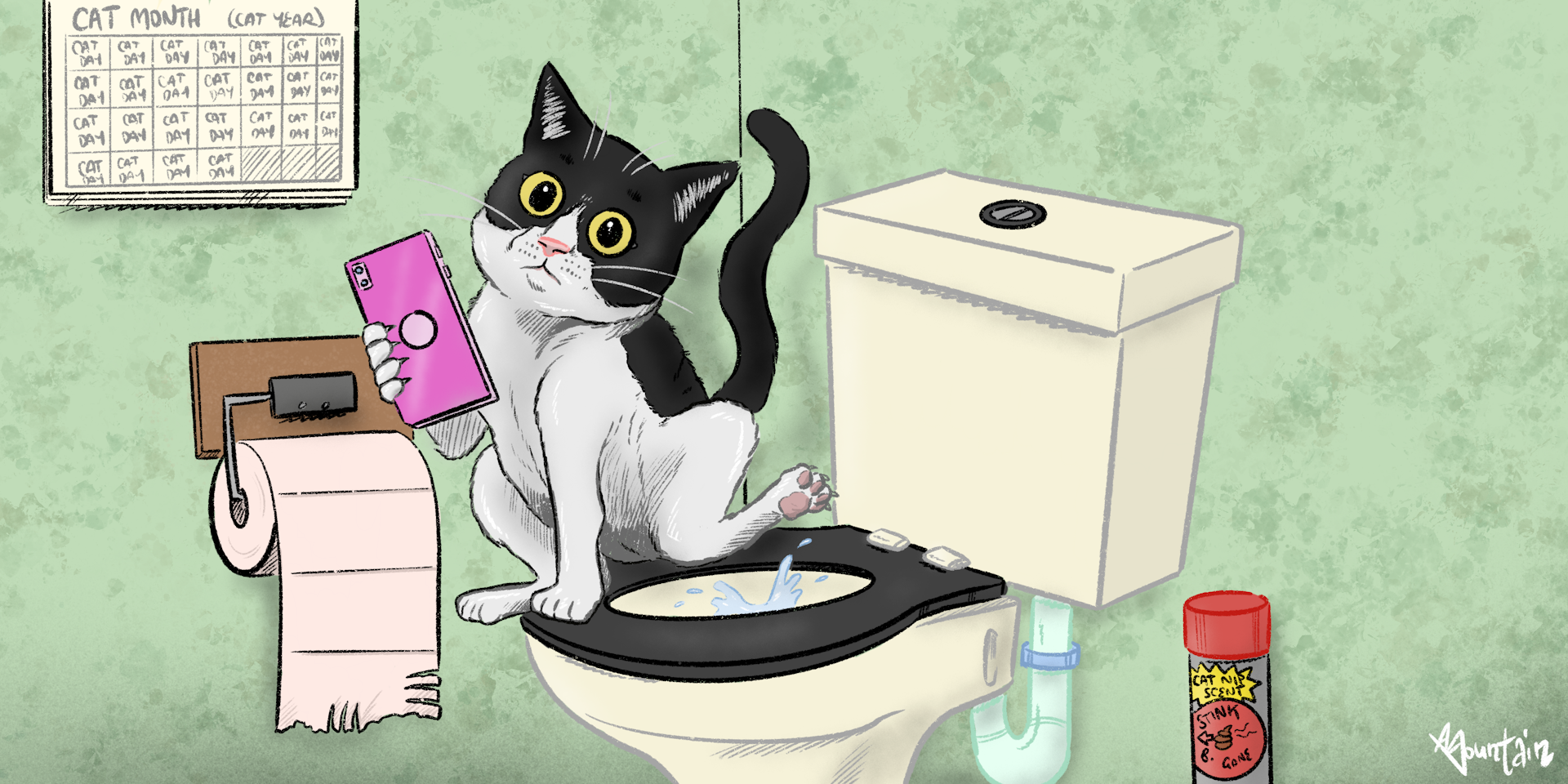We've noticed this post involving Can You Flush Cat Poop Down The Toilet? below on the net and figured it made good sense to share it with you here.

Intro
As pet cat owners, it's important to be mindful of how we get rid of our feline pals' waste. While it might seem hassle-free to purge pet cat poop down the bathroom, this practice can have destructive consequences for both the atmosphere and human health.
Ecological Impact
Flushing feline poop presents damaging pathogens and bloodsuckers right into the supply of water, posturing a significant risk to water ecosystems. These impurities can adversely impact marine life and concession water quality.
Health Risks
Along with environmental concerns, flushing feline waste can also position wellness risks to humans. Feline feces might have Toxoplasma gondii, a bloodsucker that can trigger toxoplasmosis-- a potentially serious ailment, particularly for pregnant women and people with damaged body immune systems.
Alternatives to Flushing
Fortunately, there are more secure and extra responsible means to take care of feline poop. Think about the adhering to choices:
1. Scoop and Dispose in Trash
One of the most common method of disposing of feline poop is to scoop it into a biodegradable bag and throw it in the trash. Be sure to utilize a committed litter scoop and throw away the waste promptly.
2. Use Biodegradable Litter
Choose eco-friendly pet cat trash made from products such as corn or wheat. These litters are eco-friendly and can be securely dealt with in the trash.
3. Bury in the Yard
If you have a lawn, consider burying cat waste in an assigned location far from veggie yards and water sources. Make sure to dig deep sufficient to stop contamination of groundwater.
4. Set Up a Pet Waste Disposal System
Buy an animal waste disposal system particularly created for pet cat waste. These systems make use of enzymes to break down the waste, lowering smell and ecological effect.
Final thought
Accountable family pet ownership prolongs beyond providing food and sanctuary-- it likewise involves appropriate waste monitoring. By refraining from purging cat poop down the toilet and selecting alternative disposal techniques, we can lessen our environmental footprint and secure human wellness.
Why Can’t I Flush Cat Poop?
It Spreads a Parasite
Cats are frequently infected with a parasite called toxoplasma gondii. The parasite causes an infection called toxoplasmosis. It is usually harmless to cats. The parasite only uses cat poop as a host for its eggs. Otherwise, the cat’s immune system usually keeps the infection at low enough levels to maintain its own health. But it does not stop the develop of eggs. These eggs are tiny and surprisingly tough. They may survive for a year before they begin to grow. But that’s the problem.
Our wastewater system is not designed to deal with toxoplasmosis eggs. Instead, most eggs will flush from your toilet into sewers and wastewater management plants. After the sewage is treated for many other harmful things in it, it is typically released into local rivers, lakes, or oceans. Here, the toxoplasmosis eggs can find new hosts, including starfish, crabs, otters, and many other wildlife. For many, this is a significant risk to their health. Toxoplasmosis can also end up infecting water sources that are important for agriculture, which means our deer, pigs, and sheep can get infected too.
Is There Risk to Humans?
There can be a risk to human life from flushing cat poop down the toilet. If you do so, the parasites from your cat’s poop can end up in shellfish, game animals, or livestock. If this meat is then served raw or undercooked, the people who eat it can get sick.
In fact, according to the CDC, 40 million people in the United States are infected with toxoplasma gondii. They get it from exposure to infected seafood, or from some kind of cat poop contamination, like drinking from a stream that is contaminated or touching anything that has come into contact with cat poop. That includes just cleaning a cat litter box.
Most people who get infected with these parasites will not develop any symptoms. However, for pregnant women or for those with compromised immune systems, the parasite can cause severe health problems.
How to Handle Cat Poop
The best way to handle cat poop is actually to clean the box more often. The eggs that the parasite sheds will not become active until one to five days after the cat poops. That means that if you clean daily, you’re much less likely to come into direct contact with infectious eggs.
That said, always dispose of cat poop in the garbage and not down the toilet. Wash your hands before and after you clean the litter box, and bring the bag of poop right outside to your garbage bins.
https://trenchlesssolutionsusa.com/why-cant-i-flush-cat-poop/

As a fervent reader on Can You Flush Cat Poo or Litter Down the Toilet?, I assumed sharing that excerpt was worthwhile. Liked our content? Please share it. Help another person find it. I cherish reading our article about Don’t flush cat feces down the toilet.
Check This Out
Comments on “Why Flushing Cat Poop Down Your Toilet Is Bad - Tips for Proper Disposal”